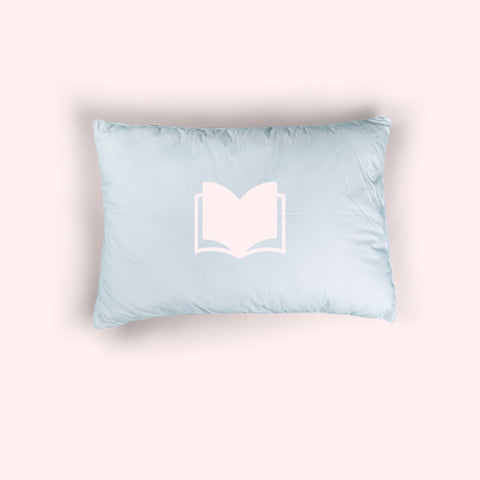Selecting the right pillow is a critical decision that affects your sleep quality and overall comfort. Your pillow provides the necessary support to your head and neck, aligning them with the rest of your spine. The ideal pillow will cushion and contour to your body, making sure that you wake up refreshed and without stiffness or pain. When shopping for a pillow, consider the loft, firmness, and material, as these factors directly influence comfort and support.
Understanding the variety of pillow options available is key to making an informed choice. Pillows range from soft to firm, with various fillings such as down, memory foam, and synthetic fibers. Soft pillows often compress under the weight of your head, suitable for stomach sleepers, while firmer options provide more support and are ideal for side and back sleepers. The quality of the pillow you select also impacts durability and how well it maintains its shape over time.
Keep in mind that personal preference plays a significant role in selecting the perfect pillow. While recommendations can guide you toward a general type, your comfort is subjective. Try out different pillows if possible, focusing on the level of support they provide and how well they fit into your sleep routine. Remember that the right pillow is an investment in your sleep health, so choose wisely for the best night's rest.
Understanding Pillow Types and Materials
Choosing the right pillow involves more than just picking the softest option. You should consider different types of pillows and materials based on their fill characteristics, support levels, and suitability for your sleeping position.
Fill Types: Pros and Cons
Memory Foam
- Pros: Memory foam pillows conform to your head and neck contours, offering excellent support, which can alleviate pain. They come in solid or shredded variants, with shredded memory foam allowing more breathability.
- Cons: They can trap heat, although many come designed with cooling technologies.
Latex
- Pros: Latex pillows are supportive, durable, and resist dust mites and mildew. They can be made from natural or synthetic latex, with natural latex being more eco-friendly.
- Cons: They are often more expensive and may have a rubber-like smell initially.
Down and Feather
- Pros: Down pillows, filled with the soft undercoating of geese or ducks, are soft, luxurious, and often hypoallergenic. Feather pillows add more firmness and are typically less expensive than down.
- Cons: They may not provide adequate support for some sleeping positions, and feathers can sometimes poke through the cover.
Down Alternative
- Pros: These pillows are often hypoallergenic and offer down-like softness without the use of animal products, sometimes using materials like polyester or microfiber.
- Cons: They may flatten more quickly and not hold their shape as long as natural down.
Buckwheat
- Pros: Buckwheat pillows provide excellent support and are known for their cooling properties, as the hulls allow for air flow.
- Cons: They can be noisy and heavy, and may not be comfortable for everyone.
Others
- Buckwheat, Kapok, and more: Organic options such as Kapok are eco-friendly and soft, while synthetic fills like polyester are a cost-effective choice, though may lack breathability.
Pillow Shapes and Sizes
Shapes
- Contour Pillows: Designed to cradle the neck and shoulders, suitable for side and back sleepers.
- Wedge Pillows: Ideal for elevating the body, helping with acid reflux, snoring, or read in bed.
Sizes
- Standard (20x26 inches): Common size for all sleeper types.
- Queen (20x30 inches): Better for those who move around at night.
- King (20x36 inches): Ideal for those who prefer extra space or use the pillow as a backrest.
- Body Pillows: Beneficial for side sleepers and pregnant women for added support.
Selecting a pillow is a personal choice based on individual needs. Whether you require a pillow for specific support, or are looking for a hypoallergenic and cooling option, there is a multitude of choices to suit your preferences. Consider the materials and shapes to find a pillow that aligns with your comfort and wellness goals.
Selecting the Right Pillow for Your Needs
Choosing the right pillow is crucial for ensuring a good night's sleep. It's essential to consider factors like your sleeping position, the pillow's firmness and loft, and any special needs you may have to maintain comfort and support throughout the night.
Alignment and Sleep Position
Your pillow should support a neutral spine alignment. This means your head, neck, and back should be kept in a straight line, reducing the chance of neck pain and discomfort.
- Side Sleepers: Typically require a firm pillow with a high loft to fill the space between the neck and mattress.
- Back Sleepers: Best suited for a medium-firm pillow with a medium loft to maintain the natural curve of the cervical spine.
- Stomach Sleepers: Should opt for a soft, low-loft pillow to prevent arching of the back.
- Combination Sleepers: May benefit from an adjustable fill pillow to cater to different sleeping positions.
Pillow Firmness and Loft
The right firmness and loft of a pillow contribute significantly to comfort and body support.
-
Firmness Levels:
- Soft Support: Often best for stomach sleepers.
- Medium Firmness: Works well for back sleepers.
- Firm Support: Generally recommended for side sleepers.
-
Loft Heights:
- Low Loft: Approximately 2-5 inches.
- Medium Loft: Around 5-7 inches.
- High Loft: More than 7 inches.
Choose firmness and loft based on what keeps your head and neck aligned with your spine.
Special Considerations
Several special requirements may influence your choice of pillow to address specific needs.
-
Allergies: Hypoallergenic materials can help prevent allergic reactions.
-
Snoring: A pillow that elevates the head can help to open airways.
-
Body Type: Larger frames may need more support, while petite frames may require softer options.
-
Pillow Shape and Material:
- Contoured pillows can accommodate specific sleep positions.
- Materials like memory foam can relieve pressure points but may retain heat.
-
Additional Pillow Features:
- Breathability: Aids in temperature regulation.
- Moisture-Wicking: Keeps the sleeping surface cool and dry.
- Machine Washable: Ensures easy cleaning.
- Pillow Protectors: Extend the life of your pillow.
By considering these factors, you can find the perfect pillow to improve your sleep quality and overall wellbeing.



